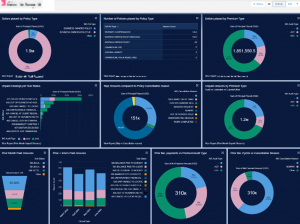Introduction
What can be done to help resolve disputes and invoicing problems before they become collection issues?
Sorting out legitimate disputes from those purely designed to avoid payment can be a challenge. By implementing several preemptive practices, you may be able to reduce both.
How to resolve accounts receivable disputes proactively
Consistent follow-up with the buyer before the account comes due has long been recognized as a key to heading off problems before they develop into disputes that delay payment.
Call the buyer when the goods should have arrived; ask if the shipment was received timely, if the quality is satisfactory and if your invoice is clear and correct.
In addition to alerting you to any potential problems, these customer service contacts also serve to remind the buyer of his obligation. He also becomes aware that you are following his account and will take quick action to assure payment.
Requiring written purchase orders should also become part of your sales policy if your goal is to reduce problems and disputes. Having the details of the purchase in written form goes a long way toward helping to determine whether or not a customer has a legitimate complaint.
These documents provide protection for both buyer and seller and eliminate the error, misunderstanding, and loss of confidence that often results when orders and their details are left to the verbal agreement.
Items such as price, quantity, terms of sale and warranties should all be clearly agreed upon and stated in the purchase order. Once received it is important that the purchase order is reviewed for errors or ambiguities. If these are resolved early on, problems can be avoided later on ensuring the cash flow process is uninterrupted.
The following are specific account management steps that can be taken to reduce disputes:
- Set a policy that requires all disputes to be resolved within two business days.
- Work with billing to ensure that the invoices that are mailed are correct, effectively eliminating much of the disputed issue.
- E-mail the customer to find out if there are any discrepancies – before the due date of the invoice.
- Fax a copy of the statement to the payables person at those accounts where disputes occur frequently. Do this prior to the due date of the invoice.
- Call customers 10 days after large invoices have been mailed to identify potential disputes and get them resolved before the due date.
- Exchange invoice information with comments on all major accounts.
- Mail quarterly statements to help resolve small disputes and keep them from growing into a large amount.
This information is provided as a matter of information and education only. It is not intended to provide legal advice or counsel. Do not take action in specific cases without the full knowledge of the facts, and competent legal advice from your attorney.
Conclusion
Taking the right steps to resolve accounts receivable disputes before they become collection issues can save your collection department time and money.
About the Author
Don graduated in 1979 from Arizona State University with a B.S., majoring in accounting and earning a Juris Doctor in 1982 from The John Marshall Law School. Don has been admitted to the Illinois State Bar since 1982 and the District of Columbia. He has extensive experience representing the rights of creditors and insurance companies. Don treats his clients’ outstanding accounts and claims as his own and believes throwing good money after bad makes no sense. His collection methods are proven effective. He tries to resolve these matters amicably at first, so that his clients may retain important relationships with their clients.
In addition to his collection practice, Don has been in-house legal counsel for a start-up litigation loan financing company, where Don was responsible for creating and implementing policies and procedures, providing legal advice to management, handling and advising on routine legal issues, transactional, compliance and corporate governance matters, underwriting and monitoring outstanding loans, and legal collection of defaulted loans. Don has also served as in-house legal counsel for a collection agency where his responsibilities included drafting collection letters, settlement workouts, litigation, and supervised and taught employees compliance under the Fair Debt Collection Practices Act.
Don’s law practice and his positions as in-house counsel have given him exposure to a wide range of problems in large and small companies from the perspective of both lawyer and management. Don has served for many years as an arbitrator for the Circuit Court of Cook County Mandatory Arbitration program and was chair-qualified with the authority to administer oaths, rule on the admissibility of evidence, and decide questions of fact and law in order to reach an award in a case.





